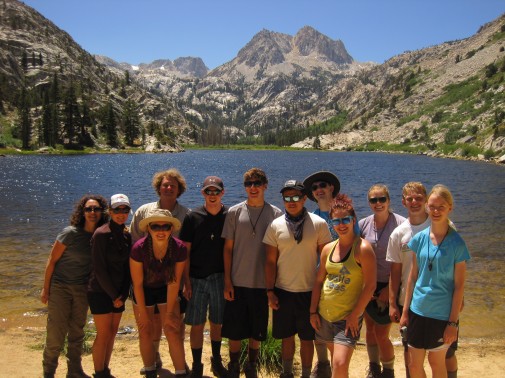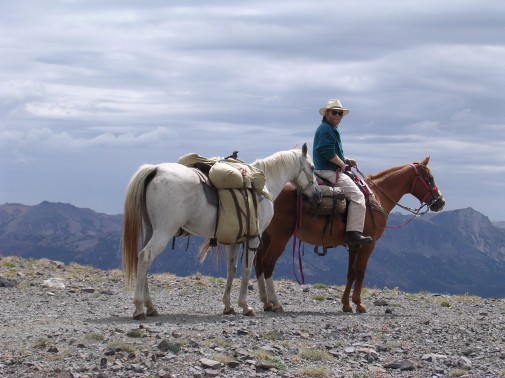Unique Westmont Wilderness Trek Turns 40
By
Westmont

Fifteen new Westmont students are traveling to the Eastern Sierra (Aug. 14-26) for a unique, 12-day backcountry adventure that submerses students in the wilderness while they earn academic and physical education credit. Inoculum, created by alumnus Dave Willis ’74, celebrates its 40th anniversary this year. One of its goals is helping participants get to know students they can trust. By sharing experiences in the mountains, participants will develop relationships with people they can rely on during the toughest first few weeks of school.
“Inoculum also helps students learn to explore, enjoy and protect wilderness,” Willis says. “We hope students will get past thinking that wilderness is merely to be survived and finish Inoculum feeling they’ve thrived in the wilderness.”
Willis, coordinator of Sierra Treks, a program that seeks to build Christian faith through wilderness experiences, manages the mountain phase of the Inoculum program every year with a team of staff and trip leaders.
English professor Paul Willis, Dave’s brother, and alumnus Eric Meyer ’03 are this year’s faculty leaders. Paul, who was a trip leader on the maiden Inoculum in 1974, and his group have been studying the writings of John Muir, while Meyer’s group is reading “The Creation” by E.O. Wilson with supplemental chapters and articles from N.T. Wright, Elizabeth Johnson and Annie Dillard.
Tom Fikes, professor of psychology and neuroscience, will assist the backpackers with the rock climbing and peak-climb portions of the adventure. Eileen McQuade, associate professor of biology, serves as program director. Kaitlin Jones, biology instructor and lab coordinator, serves as support staff.
Dave Willis hopes the Inoculum and other Sierra Treks trips for Westmont over the past 40 years have reminded students about the basic human task.

“The earth is the Lord’s, although we rarely treat it that way,” Willis says. “I can’t shake the human job description in Genesis 2:15: ‘Then the Lord God took the man and put him in the Garden of Eden to cultivate and keep it.’
“The Hebrew there means ‘serve and guard.’ Protecting God-created land, air, water and creatures by ‘serving and guarding’ is a big part of what it means to be human. I can’t help but approach it from a theological perspective because in my gut, that’s how I view the world.”
Filed under
Academics, Admissions, Alumni, Campus Events, Faculty and Staff, Featured, Press Releases, Student Stars